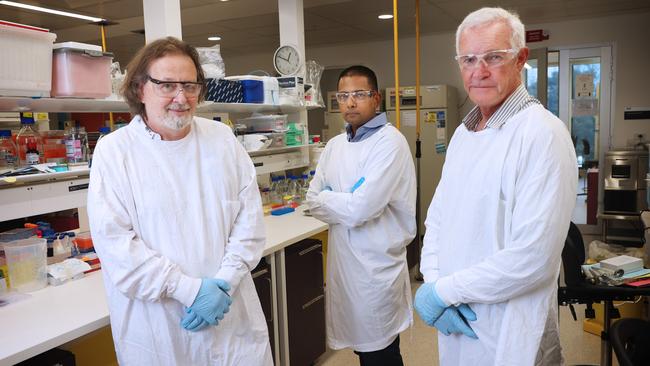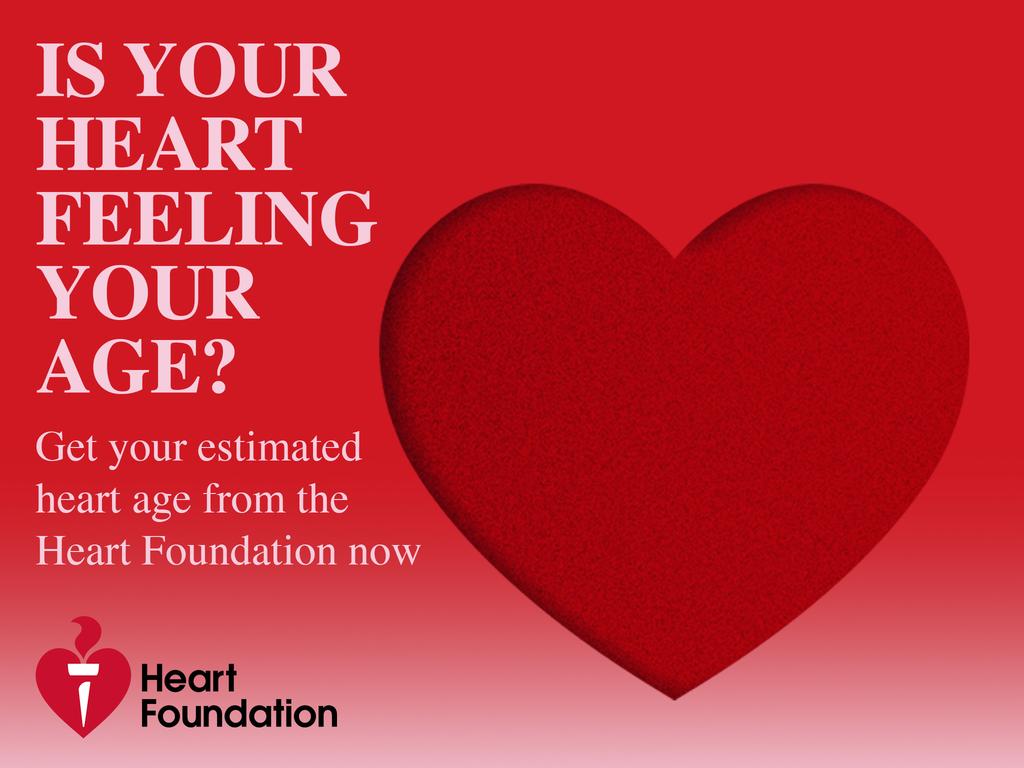Australian researchers trialling potential new therapy for stiff heart syndrome
Stiff Heart Syndrome affects 10 per cent of people aged over 45. Australian scientists are trying to find a fix using a simple supplement.

Watching Sydney man Aaran Creece easily stroll down several flights of stairs, you wouldn’t know he had heart surgery just 10 weeks ago.
“It’s weird to think that someone’s been mucking around with your heart but it’s a good feeling. I feel good,” he said.
The freelance camera operator and father of one first noticed something amiss about eight years ago when he felt his heart beat strangely while resting.
“Quite specifically, it was my heart doing an extra big beat,” he said. “This was literally out of the ordinary, just a boom, that big extra beat. It happened once and I didn’t think anything of it, but it began to happen on a more regular basis, and I thought I needed to go and see a doctor because that shouldn’t be happening, in my opinion.”
His cardiologist identified he had Stiff Heart Failure and began treating a leaky valve. Mr Creece was prescribed medication to help manage his heart beat and its surrounding muscles. He also decided it was a good time to increase his exercise and pay closer attention to what he ate.
Stiff Heart Failure is estimated to affect some 10 per cent of people aged over 45. It occurs when amyloid deposits take the place of the heart muscle. While not a lot is known about why that happens, it results in the heart muscle not being able to relax properly and can lead to potentially fatal complications. Once diagnosed, the condition has a five-year mortality rate of 75 per cent, though a patient’s outcome can depend on treatment.
Ten weeks ago, Mr Creece underwent successful aortic root replacement surgery at Royal Prince Alfred Hospital in Sydney. His surgeon, Paul Bannon, also happened to be working on a world first proof-of-concept therapy for Stiff Heart Failure and Mr Creece agreed to take part.
In the lead-up to his surgery, Mr Creece began taking oral supplements of the vitamin B complex each morning and night. Prior studies have pointed to a potential link between low levels of a molecule called nicotinamide adenine dinucleotide and Stiff Heart Failure.
Scientists want to see if that molecule can be replenished if a patient takes the supplements.
“First of all, we want to see if we can get that supplement into the heart muscle and see if we get an improvement in the so-called Stiff Heart Syndrome,” said Professor Bannon, the head of cardiothoracic research at RPA Hospital and chair of surgery at Sydney University. He is also chairman of the Baird Institute.
“Currently, we have these programs where we get the body and the lungs and the muscles in better shape prior to major surgery, but this is actually pre-habilitating the heart muscle before we go into the operation, and then testing that to see if we’ve been effective. It’s quite an elegant study.”
The trial is a joint partnership between RPA Hospital and the University of Sydney’s Baird Institute – Australia’s only dedicated cardiothoracic surgical training and research facility – which sits within the university’s Charles Perkins Centre.
Sean Lal is an associate professor of medicine with the University of Sydney and a consultant cardiologist at Royal Prince Alfred Hospital who is also working on the trial.
“What would be extremely novel is if we show that in the group who’s randomised, it is actually being taken up in the heart, compared to the group who was not randomised,” he said.
“If you show that, the next stage is a large-scale international trial to then look at the beneficial effects of it.”
Researchers anticipate the initial trial will take around two years to complete. As for Mr Creece, he said he was feeling good and had been given a clean bill of health post-surgery.
“I feel pretty good. If I hadn’t listened to my body, if I hadn’t listened to the healthcare professionals around me, it could have had long-term negative impacts on my life, and I quite like my life. So, yeah, I feel good.”





To join the conversation, please log in. Don't have an account? Register
Join the conversation, you are commenting as Logout